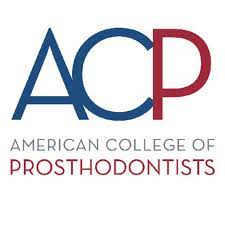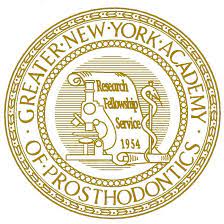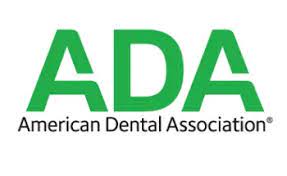Dentures have been a solution to severe tooth loss for years, but they also have some downsides. Traditional dentures can make daily life more challenging, from slippages to daily cleaning requirements. Implant-supported dentures prevent these issues. However, the bone resorption that occurs after tooth loss can make it harder to get these implants. That’s where All-On-4® in Coral Gables comes in.
The All-On-4® technique places the dental implants at a specialized angle to make the most of any available bone, making them a reliable option for patients with bone loss.
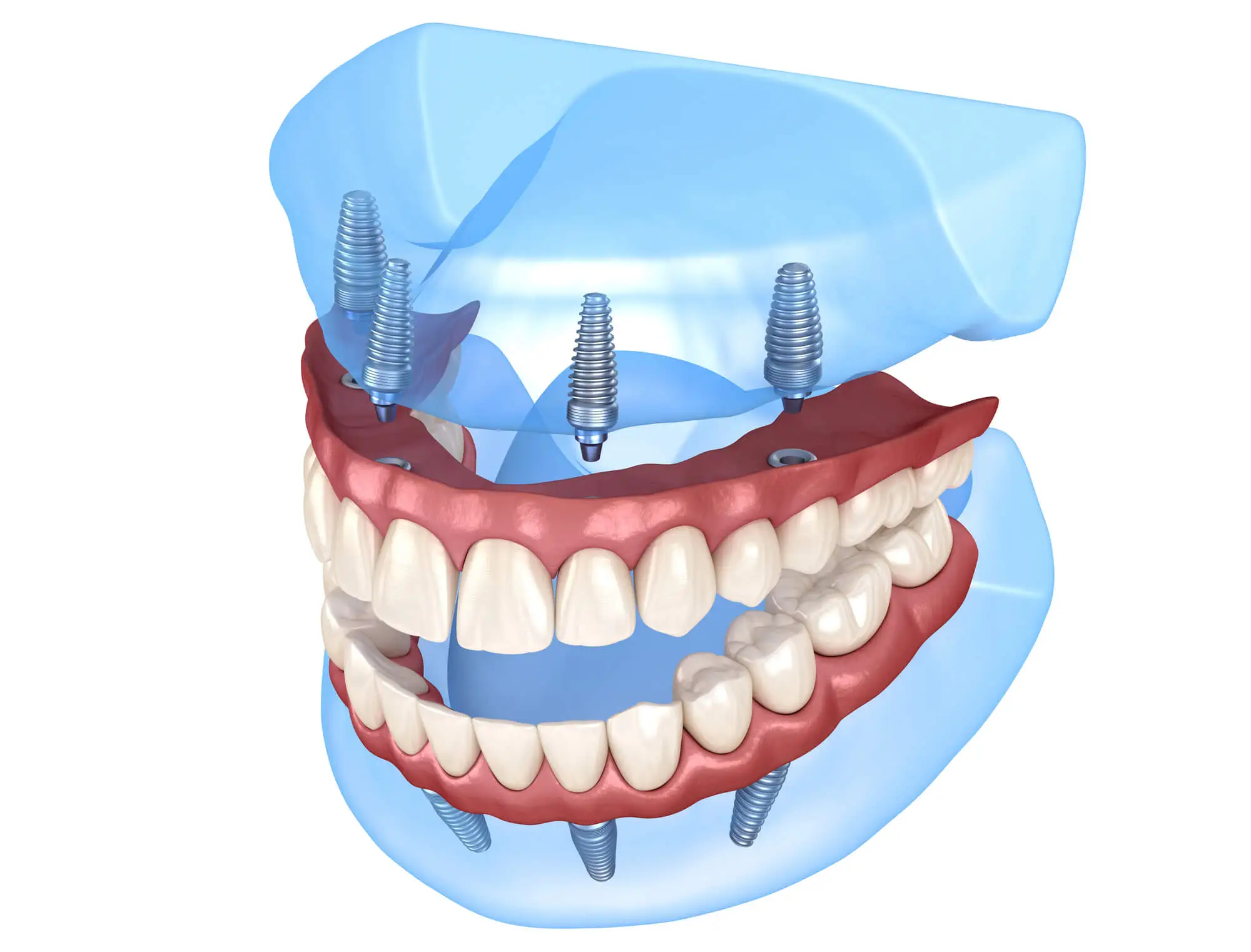
All-On-4® dental implants are a revolutionary dental restoration solution that provides patients with a full set of teeth (either upper or lower jaw) supported by only four dental implants. These implants are strategically placed in the jawbone to hold a fixed dental bridge or prosthetic arch.
Unlike removable dentures, All-On-4® implants are permanently fixed to the jaw. This provides excellent stability—no slipping, clicking, or shifting during eating or speaking. Moreover, this method is less invasive than placing 6–8 implants, which results in faster healing and lower cost.
Severe tooth loss can be very damaging to your quality of life. It makes eating and speaking harder, but these struggles can also damage your digestion and affect your overall body in the long run. Dentures are a simple option to avoid these issues.
Dentures are affordable, effective, and quick to get two complete arches of teeth. While it can take some time to get used to them, dentures will allow you to eat and speak with ease once again.
In the long run, dentures also have several limitations: they can shift while you speak, they can break when eating (especially hard foods), and they don't provide jawbone stimulation, ultimately leading to jawbone resorption.
Three ways in which dentures can negatively impact your bone health are:
Natural teeth are anchored in the jawbone and transmit mechanical forces (chewing pressure) through the periodontal ligament (PDL) to the bone. These forces stimulate bone remodeling and maintain bone volume and density.
When teeth are lost and replaced with dentures, this stimulation stops, leading to bone disuse and atrophy.
Dentures rest on the gum tissue and compress the underlying bone during chewing. This pressure is non-physiological and does not stimulate bone formation. In fact, it can accelerate resorption, especially in areas of concentrated load.
Poorly fitting dentures exacerbate this by creating uneven pressure, increasing bone loss in localized areas.
Long-term denture use can cause low-grade inflammation in the soft tissues due to friction, trauma, or poor hygiene. This inflammation indirectly contributes to bone breakdown, the same way that gum disease does.
Yes, implant-supported dentures, like the All-On-4® method, are embedded in the jawbone and stimulate the bone, just like natural teeth. This prevents bone resorption that typically occurs with long-term denture wear.
Unlike traditional dental implants, which may require the placement of multiple implants throughout the mouth, All-on-4® achieves the same result with only four implants. This allows patients with low jawbone density who have worn dentures for years to have access to a more stable restoration option.
In some cases, when patients have worn dentures for several years, a bone-regenerating procedure like bone grafting or sinus lift may be necessary to ensure a successful outcome.
Bone grafting is a surgical procedure that involves transplanting bone tissue, or a substitute material, to repair or rebuild damaged or diseased bones or to stimulate bone growth. This makes the bone thicker and ready for All-On-4® implants.
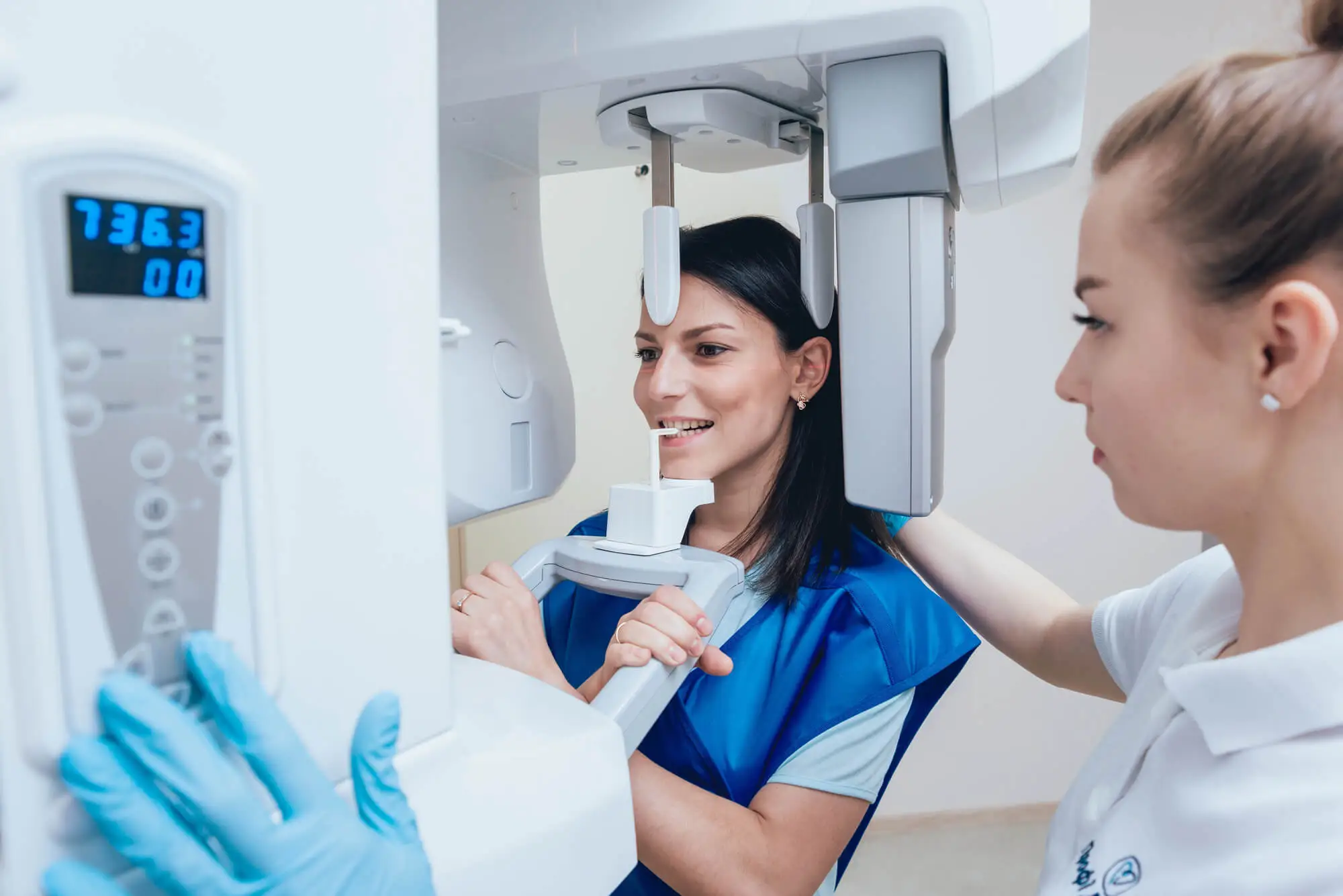
Getting All-On-4® dental implants involves several steps, carefully planned to ensure a stable, natural-looking, and durable restoration. Some of the steps it involves include:
The first step for getting All-On-4® implants is a comprehensive dental evaluation. Your dentist or oral surgeon will evaluate your oral health, review your medical history, and discuss your goals.
A 3D CBCT scan (cone beam computed tomography) is typically performed to assess bone density and structure. This helps determine whether you're a good candidate for All-On-4® implants or if any preoperative procedures, such as bone grafting, are required.
If you are a candidate, a thorough treatment plan will be developed. This includes deciding the precise placement of the implants in the areas where you have the most natural bone, the type of prosthetic teeth you will receive, and the timetable for surgery and recovery.
The All-On-4® implant placement is an oral surgery, so surgical preparations are needed. We will review any health conditions or medications you may have, offer instructions for the day of surgery, and explain how to prepare for sedation or anesthesia.
On the day of surgery, four implants are placed into the jawbone. The two front implants are placed vertically, while the two back implants are tilted at an angle to maximize contact with bone and prevent anatomical structures like sinuses or nerves.
In most cases, a temporary fixed prosthesis is attached to the implants during the same appointment. You'll leave the office with a full set of functional teeth, although they are not the final version.
After surgery, the implants require time to integrate with the jawbone, a process known as osseointegration, which typically takes 3 to 6 months. During this time, your temporary teeth allow you to talk and eat normally while your bone fuses with the implants.
After healing, your temporary teeth will be replaced with a custom-made, permanent prosthesis. This final set of teeth is designed for maximum aesthetic appeal, bite alignment, and durability. Your smile will look and function like natural teeth.
Recovering from All-On-4® dental implant surgery and maintaining your new dentures properly is essential for long-term success.
It is normal to experience swelling, bruising, mild discomfort, and minor bleeding immediately following surgery. Your dentist may prescribe antibiotics and pain relievers to help you manage the healing process.
Tips for early recovery include:
You will need to eat soft foods for several weeks after surgery. This protects the implants as they integrate with the jawbone.
Recommended foods include:
Avoid eating anything hard, crunchy, or sticky during this healing period, as it can harm your restorations.
Even if your prosthetic teeth are not removable, daily cleaning is critical to preventing infections and complications in the surgical area. During healing, we recommend using a soft-bristle toothbrush and fluoride toothpaste. Avoid vigorous brushing around the implant sites and water flossers until cleared by your dentist.
Once healing is complete and your final prosthesis is in place, keeping your All-On-4® restoration clean and healthy requires a consistent daily routine.
Brush your prosthetic teeth twice daily with a non-abrasive toothpaste and a soft or electric toothbrush. Use interdental brushes or special implant floss to clean under and around the bridge, where plaque can build up.
Some patients benefit from using a water flosser to flush out food debris and bacteria.
Even though the teeth are not natural, bacteria and tartar can still accumulate around the overdenture. Over time, this can irritate your gums and cause peri-implantitis. This dangerous condition can cause your All-On-4® dentures to fail.
It’s important to see your dentist every six months (or as recommended) for professional cleaning and implant checkups.
Call your dentist if you notice redness or swelling in the gums or loosening of the dental appliance.
Catching issues early can prevent more serious problems, so don’t hesitate to contact us!

A confident smile is vital to our overall appearance and self-assurance. It can boost our self-esteem and make us feel more at ease in social interactions. However, losing teeth can significantly impact our confidence. While dentures can help you restore your smile quickly and affordably, they also come with several challenges, such as slippage, strict cleaning requirements, and wear and tear over time.
With All-On-4® implant-supported dentures, you can say goodbye to all these issues. If you're interested in learning more about this revolutionary treatment, contact Coral Gables Dentistry today!
"Nobel Biocare, NobelProcera, NobelGuide and All-on-4 are trademarks of the Nobel Biocare group."

We value your time, so we always run on schedule, respecting your commitments, with no double bookings and minimal wait times. Experience dentistry like never before in our award-winning clinic.

